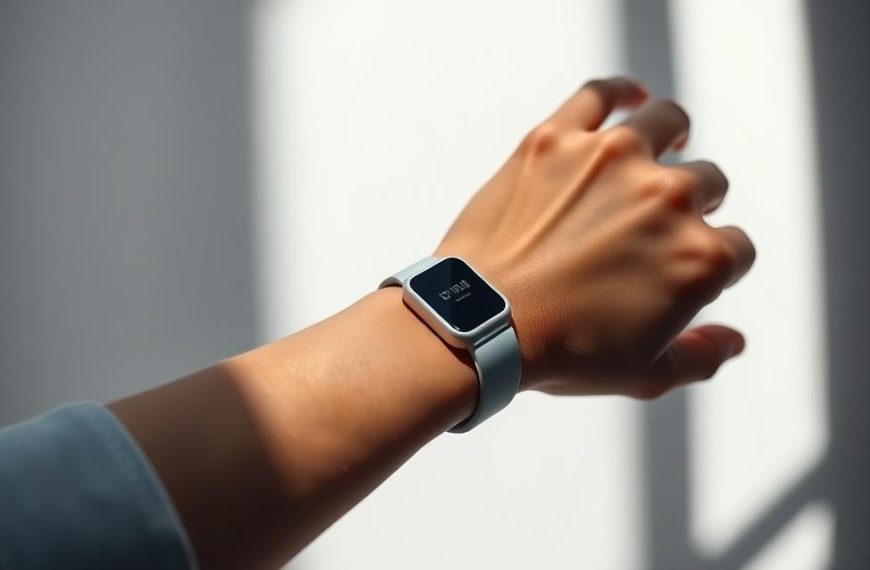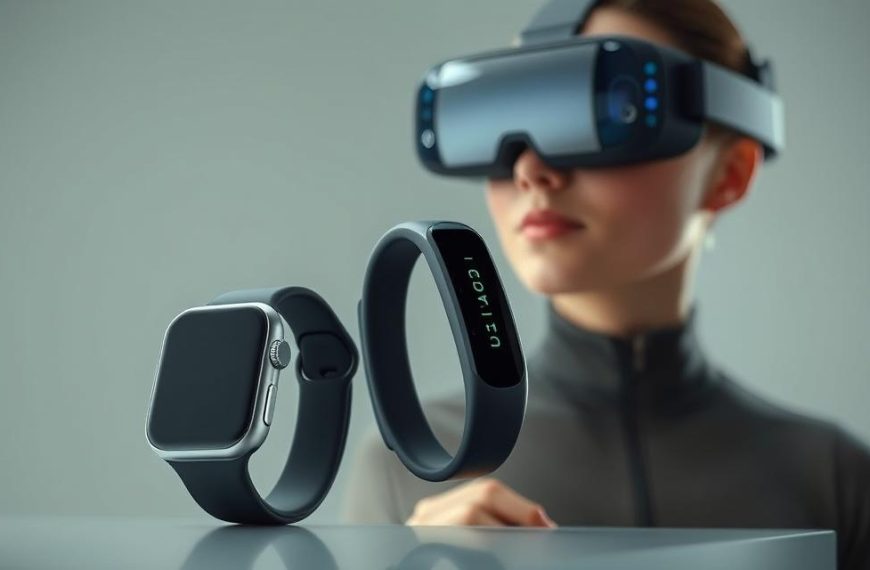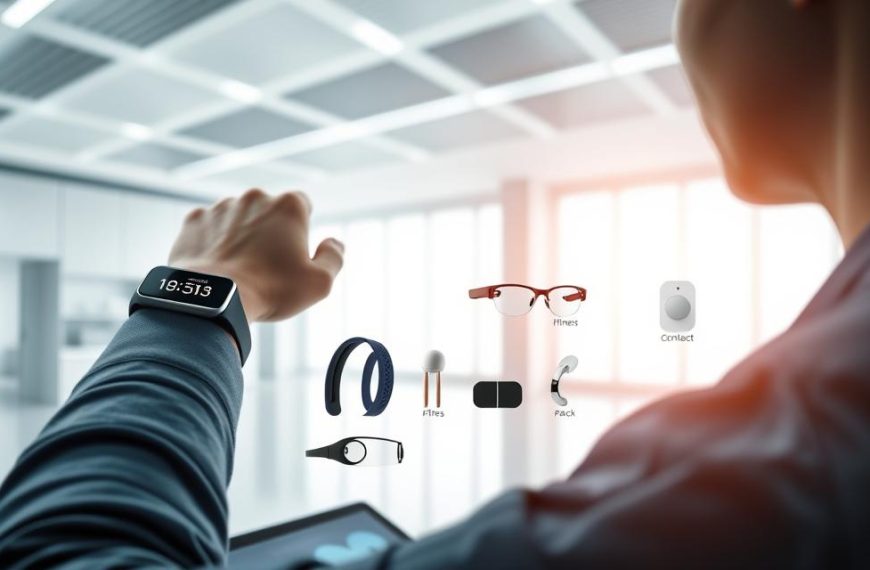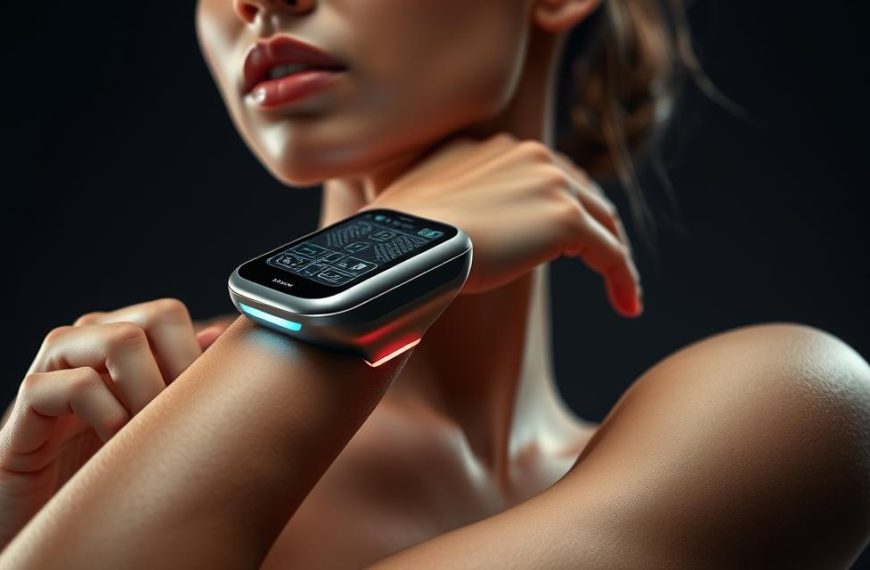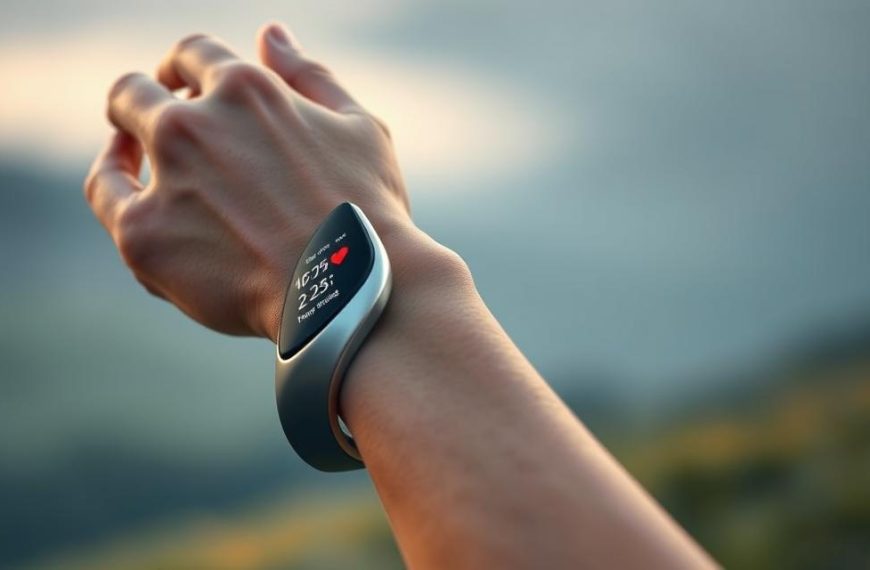Apple entered the wearable market in 2014 with the Apple Watch. Despite being a latecomer, the company now leads the sector. Its success stems from a strategic focus on three core product families: watches, earphones, and head-mounted displays.
According to a 2025 report by ResearchAndMarkets, Apple captures over 50% of the smartwatch market. This dominance extends to its earphones, which have seen widespread adoption. Tim Cook, Apple’s CEO, has emphasized the importance of seamless integration across devices.
AirPods, part of Apple’s earphone lineup, blur the lines between traditional and modern definitions of wearable tech. Their evolving capabilities, such as noise cancellation and spatial audio, make them a favorite among users. This raises the question: do they fit the broader definition of wearable technology?
What Defines Wearable Technology?
Wearable devices have evolved from simple accessories to advanced health monitoring tools. These products are designed to integrate seamlessly into daily life, offering features like motion detection and biometric tracking. Their ability to collect and analyze data has made them indispensable for many users.
Understanding the Basics of Wearable Devices
At their core, wearable devices are electronic gadgets worn on the body. They range from smartwatches to fitness trackers, each equipped with sensors to monitor various metrics. These tools have become essential for tracking health and fitness goals.
Key Characteristics of Wearable Technology
Modern wearables share several defining features. They include sensor integration, data connectivity, and seamless interoperability with other products. Health monitoring, such as heart rate tracking, has become a critical differentiator in these devices.
For example, the Apple Watch’s FDA-cleared ECG feature sets a benchmark for health monitoring. Competitors like Garmin and Fitbit have also made significant strides in this area. These advancements highlight the importance of wearables in modern health management.
| Feature | Smartwatches | Hearables |
|---|---|---|
| Motion Detection | Yes | Yes |
| Biometric Tracking | Yes | Limited |
| Health Monitoring | Advanced | Basic |
For more information on the evolution of wearable technology, explore this detailed guide. The future of these devices promises even greater integration into our daily lives.
Are AirPods Wearable Technology? Exploring Their Features
Apple’s innovative approach has redefined how we interact with personal devices. Their products seamlessly blend design and functionality, making them a staple in daily life. AirPods, in particular, have evolved beyond simple earphones, offering advanced features that align with modern wearable tech.
AirPods’ Design and Functionality
The sleek design of AirPods combines comfort with cutting-edge technology. Features like spatial audio and the H1 chip enhance the listening experience. These elements make them more than just earphones, positioning them as essential personal gadgets.
Integration with Other Apple Devices
AirPods integrate effortlessly with the Apple ecosystem. The Find My feature ensures they’re always within reach, syncing with iPhones and iPads. This seamless connectivity enhances their usability, making them a favorite among users.
Health and Fitness Tracking Capabilities
While not as advanced as the Apple Watch, AirPods are stepping into health monitoring. Rumors suggest future models may include heart rate tracking via ear canal sensors. Temperature sensing for illness detection is also in development, expanding their role in personal health.
Bloomberg reports on a prototype with camera integration, paired with AI capabilities. This could revolutionize how users interact with their devices. However, privacy concerns with in-ear cameras remain a topic of discussion.
AirPods’ potential for biometric tracking offers unique advantages over wrist-based devices. Ear-based sensors could provide more accurate data, enhancing their appeal. Synchronization with the iOS Health app further solidifies their place in the wearable tech landscape.
The Role of AirPods in the Tech Industry
Apple’s AirPods have become a cornerstone of its wearable ecosystem. With a 35% share of the true wireless market, they dominate the competition. Their seamless integration and advanced features have made them a favorite among users worldwide.
Market Position and Consumer Adoption
AirPods lead the true wireless earbuds market, outperforming rivals like Samsung Galaxy Buds and Sony WF-1000XM5. Their average selling price (ASP) reflects their premium positioning, with the Pro model commanding higher margins. This success contributes over 10% to Apple’s revenue from wearables.
Consumer adoption has been driven by their ease of use and integration with the Apple ecosystem. Features like Find My and spatial audio enhance their appeal. Tim Cook’s focus on collecting “human data” further underscores their role in personalizing user experiences.
Comparison with Other Wearable Devices
When compared to Meta Ray-Bans smart glasses, AirPods offer superior battery life and audio quality. However, they face potential cannibalization risks with the Apple Watch, as both target health-conscious users. Despite this, AirPods’ unique ear-based sensors provide distinct advantages for biometric tracking.
Apple’s supply chain strategy ensures consistent availability, even during global shortages. Partnerships with medical institutions highlight their focus on advancing health monitoring capabilities. These collaborations position AirPods as more than just audio devices.
Impact on Apple’s Wearable Business Strategy
AirPods play a pivotal role in Apple’s broader wearable strategy. Their success has encouraged innovation, with rumors of future models featuring cameras and AI capabilities. These advancements could redefine how users interact with their devices.
Cook’s emphasis on health and data collection aligns with Apple’s vision for integrated technology. By expanding AirPods’ capabilities, Apple strengthens its position in the wearable market. This strategy ensures sustained growth and relevance in an increasingly competitive landscape.
Future Developments in AirPods Technology
Innovative advancements are shaping the future of personal audio devices. Rumors suggest significant upgrades, including cameras and AI capabilities. These features aim to enhance user experiences and expand functionality.
Rumored Enhancements: Cameras and AI Features
Reports indicate that future models may include 5MP sensors for capturing environmental data. AI-driven technology could analyze this information, enabling contextual awareness. For example, the Conversation Boost feature might adapt audio settings based on surroundings.
Heat dissipation and cybersecurity remain key challenges. Adding processors increases thermal output, while always-on sensors raise privacy concerns. These hurdles must be addressed to ensure seamless integration.
Potential Health Monitoring Additions
Future devices could monitor health metrics like heart rate and body temperature. Ear-based sensors may provide more accurate data than wrist-based alternatives. However, FDA clearance will be required for medical-grade functionalities.
Testing is underway for features like temperature sensing and heart rate tracking. These additions could position personal audio devices as essential tools for users focused on wellness.
Challenges and Considerations for Future Integration
Integrating advanced features presents technical and regulatory challenges. Heat management and battery life are critical concerns. Additionally, ensuring data security is paramount for users.
Comparisons with competitors like Google Pixel Buds highlight the need for innovation. Computational photography and AI capabilities will be key differentiators. For more insights, explore this detailed report.
Conclusion
Apple’s wearables segment continues to redefine personal tech, with health-focused innovations leading the charge. Their audio devices have evolved into essential tools for monitoring wellness, offering features like heart rate tracking and temperature sensing. This shift aligns with Apple’s broader strategy to dominate the $40 billion wearables market.
Future models, rumored to include cameras and AI capabilities, could disrupt the industry further. These advancements position Apple as a leader in integrating health and technology seamlessly. Competitors in the Android ecosystem face significant challenges in matching this level of innovation.
As users increasingly prioritize health monitoring, Apple’s devices are poised to set new standards. Their long-term replacement cycles and expanding feature sets ensure sustained growth. Apple’s commitment to advancing health tech cements its position at the forefront of the wearables market.
FAQ
What defines wearable devices?
Wearable devices are electronic gadgets designed to be worn on the body. They often include features like connectivity, sensors, and integration with other tech products.
Do AirPods qualify as wearable technology?
Yes, AirPods are considered wearable tech due to their compact design, wireless functionality, and seamless integration with Apple devices.
How do AirPods integrate with other Apple products?
AirPods connect effortlessly with iPhones, iPads, and Macs. Features like automatic pairing and Siri support enhance the user experience across Apple’s ecosystem.
Can AirPods track health and fitness data?
While primarily designed for audio, AirPods Pro and AirPods Max include features like spatial audio and adaptive EQ, which indirectly support wellness and immersive experiences.
How do AirPods compare to other wearable devices like the Apple Watch?
AirPods focus on audio and convenience, while the Apple Watch emphasizes health tracking and notifications. Both complement each other within Apple’s wearable lineup.
What future enhancements are expected for AirPods?
Rumors suggest potential additions like health monitoring sensors, AI-driven features, and even camera integration to expand their functionality.
What challenges might AirPods face in future development?
Balancing advanced features with battery life, ensuring user privacy, and maintaining a lightweight design are key challenges for future AirPods iterations.





